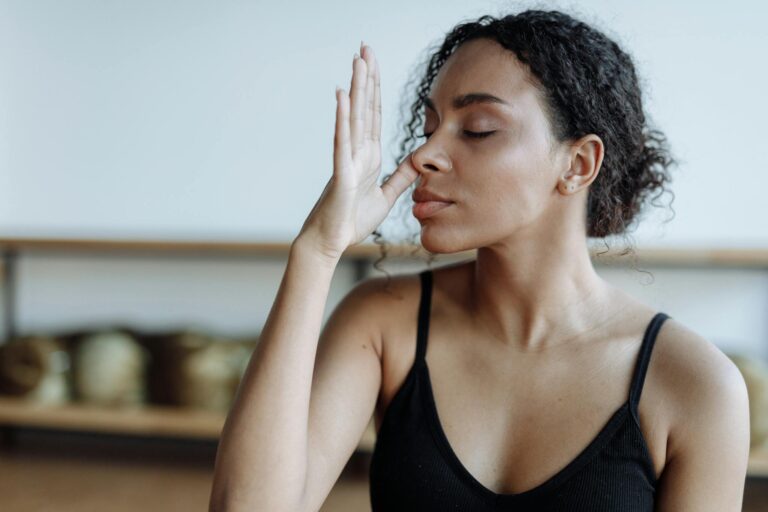CPAP mouth breather:
CPAP therapy is a highly effective treatment for sleep apnea, but it can sometimes lead to a condition called CPAP mouth breathing. A CPAP mouth breather is someone who, despite using a CPAP machine and wearing a mask that covers both the nose and mouth, predominantly breathes through their mouth during sleep.
Mouth breathing during CPAP therapy can occur for a variety of reasons. Some individuals naturally prefer breathing through their mouths, while others may experience nasal congestion or blockages that force them to breathe. Additionally, specific CPAP masks may not fit properly or cause discomfort, making it difficult for individuals to breathe through their noses.
Mouth breathing during CPAP therapy can lead to several issues. It can cause dry mouth, sore throat, and even dental problems. It can also reduce the effectiveness of the therapy, as the pressurized air may escape through the mouth instead of reaching the airways.
Luckily, there are solutions for CPAP mouth breathers. One option is to try different CPAP masks, such as nasal or nasal pillow masks, that only cover the nose. Another option is to use a chinstrap or a full face mask that covers both the nose and mouth, ensuring the air stays in the airways. Working closely with a healthcare provider is essential to find the best solution.
In summary, CPAP mouth breathing can be a common issue for individuals using CPAP therapy. Recognizing the potential risks and seeking appropriate solutions to ensure the therapy is practical and comfortable.
Solutions for CPAP mouth breathers:
If you’re a CPAP mouth breather, don’t worry – there are solutions to help you! The first option is to try different types of CPAP masks. Nasal masks and nasal pillow masks only cover the nose, allowing you to breathe through your nose more easily. These masks can be a great option if you don’t experience any issues with nasal congestion or blockages.
Another solution is to use a chinstrap or a full face mask that covers both the nose and mouth. These options ensure that the pressurized air stays in the airways and prevents mouth breathing.
Working closely with your healthcare provider to find the best solution for your needs is essential. They can provide personalized advice and recommendations based on your sleep apnea symptoms and mask preferences.
Remember, finding the right solution may require some trial and error. Keep going, even if it takes time to find the perfect fit. By persisting and working with your healthcare provider, you can find a solution that allows you to comfortably and effectively manage your sleep apnea.
CPAP mouth breather therapy:
CPAP mouth breather therapy is crucial for individuals who experience mouth breathing during CPAP therapy. Finding a solution that allows for effective and comfortable sleep apnea treatment is essential. The therapy addresses the underlying causes of mouth breathing and minimizes the associated risks.
One option for CPAP mouth breather therapy is to try different CPAP masks. Nasal and nasal pillow masks, which only cover the nose, can be effective for individuals without nasal congestion or blockages. These masks promote nasal breathing and reduce the likelihood of mouth breathing.
Another solution is to use a chinstrap or a full face mask that covers both the nose and mouth. These options help keep the mouth closed during sleep, ensuring the pressurized air reaches the airways instead of escaping through the mouth. It can significantly improve the effectiveness of CPAP therapy.
Working closely with a healthcare provider is crucial to finding the best solution for your needs. They can provide personalized advice and recommendations based on your sleep apnea symptoms and mask preferences. They can also monitor your progress and make any necessary adjustments to your CPAP therapy.
Remember, finding the right solution may require some trial and error. It’s important not to get discouraged if it takes time to find the perfect fit. By persisting and working with your healthcare provider, you can find a solution that allows you to comfortably and effectively manage your sleep apnea.
Overall, CPAP mouth breather therapy plays a significant role in optimizing the benefits of CPAP therapy. It’s essential to explore different options, work closely with a healthcare provider, and remain persistent in finding the right solution for you. Doing so can enhance the effectiveness of your CPAP therapy and improve your overall sleep quality and well-being.
Risks of mouth breathing during CPAP therapy:
Mouth breathing during CPAP therapy can pose several risks and complications for individuals. One of the main risks is the development of a dry mouth, which occurs when the flow of air from the CPAP machine dries out the saliva in the mouth. It can lead to discomfort, difficulty swallowing, and an increased risk of oral health issues such as tooth decay and gum disease.
Another risk of mouth breathing during CPAP therapy is a sore throat. When individuals breathe through their mouths, the air directly hits the back of the throat, causing irritation and inflammation. It can result in a sore throat, hoarseness, and even the development of tonsillitis in some cases.
Additionally, mouth breathing can reduce the effectiveness of the therapy itself. The pressurized air from the CPAP machine may escape through the open mouth instead of reaching the airways. It can lead to a decrease in the therapeutic benefits of the treatment and potentially exacerbate the symptoms of sleep apnea.
It’s essential for individuals who experience mouth breathing during CPAP therapy to address these risks and seek solutions. Working closely with a healthcare provider can help identify the best options, such as trying different types of masks or using chinstraps to keep the mouth closed. By finding the right solution, individuals can ensure that their CPAP therapy is practical and comfortable while minimizing the risks of mouth breathing.
Tips for managing mouth breathing during CPAP therapy:
Managing mouth breathing during CPAP therapy can be challenging, but several tips can help make the experience more comfortable and practical. Here are some tips to consider:
1. Try a chinstrap: Using a chinstrap can help keep your mouth closed during sleep, preventing mouth breathing. It can be constructive if you breathe through your mouth naturally.
2. Practice nasal breathing: Daily breathing exercises can help strengthen your nasal passages and reduce the urge to breathe through your mouth at night. Simple techniques like taking slow, deep breaths through your nose can make a difference.
3. Keep your nasal passages clear: If you often experience nasal congestion or blockages, using a nasal decongestant spray or nasal irrigation system before bed can help open up your airways and promote easier breathing through your nose.
4. Adjust your mask fit: If your CPAP mask is uncomfortable or doesn’t fit properly, it can make mouth breathing more likely. Work with your healthcare provider to ensure your mask is the right size and properly adjusted to minimize leaks and promote effective nasal breathing.
Remember, finding the right solution may take time and experimentation. Be encouraged if it takes a few tries to find what works best for you. Keep working with your healthcare provider and trying different techniques until you find a method that helps you manage mouth breathing and optimize your CPAP therapy.





